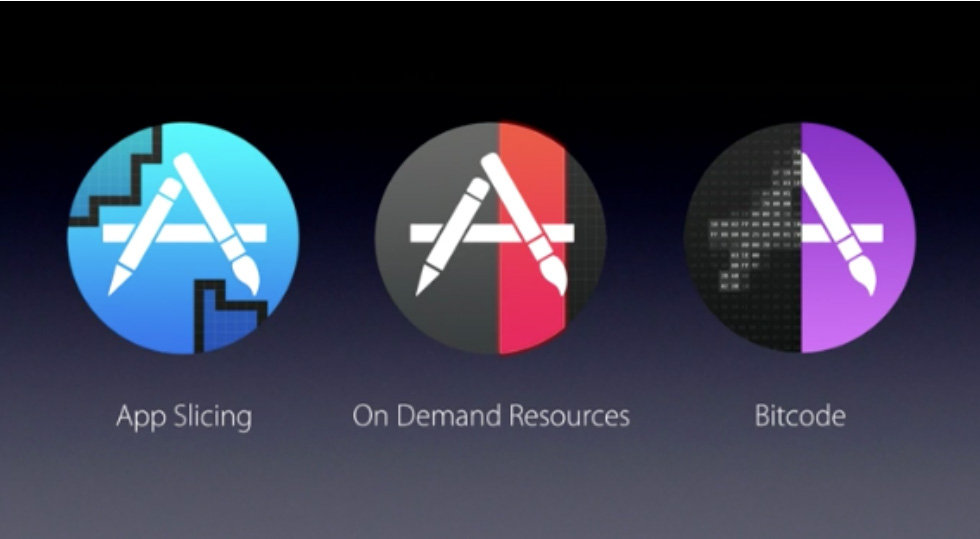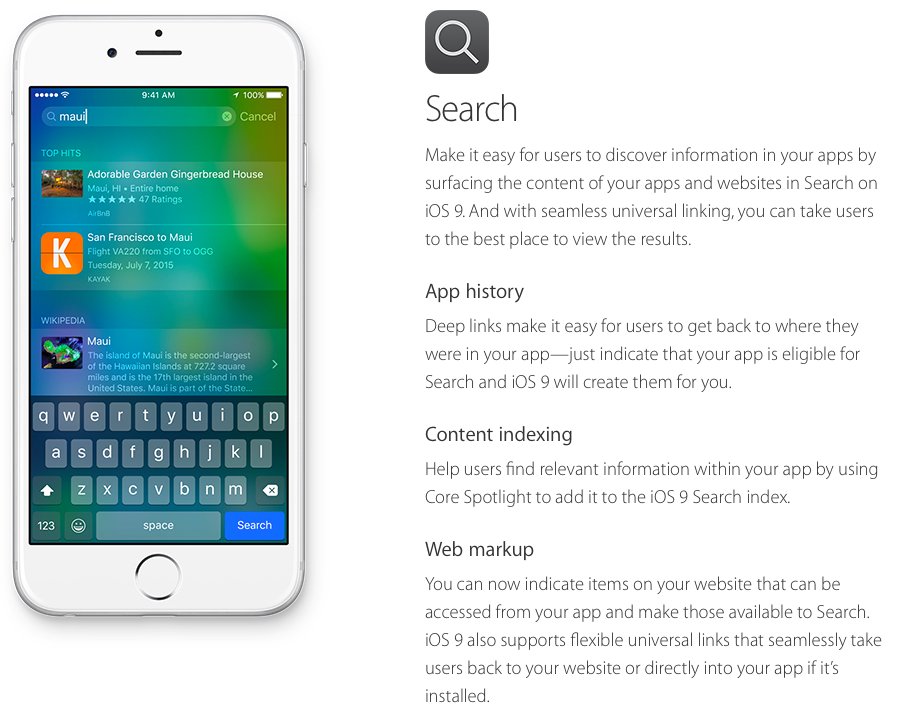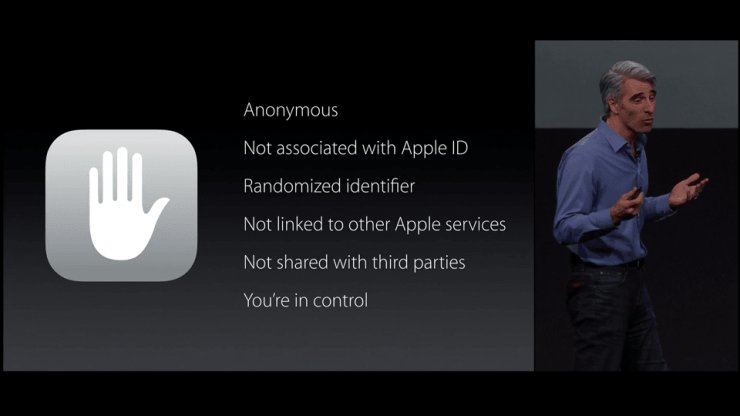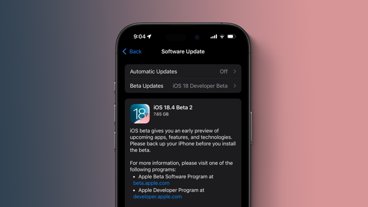Google's Android installed base has long suffered a major problem with fragmentation at the OS API level, due to the fact that licensees continue shipping low end phones paired with old versions of Android. Here's what the company is ostensibly doing to address that in a new project introduced at its I/O 2016 conference: Instant Apps.
At this year's Google I/O conference, the installed base for the latest release of Android (from a year ago) fell by 20 percent compared to just one year ago, while users stuck on very old versions of Android (four years old or even older) increased by 120 percent, now making up a quarter of Google's active users. In 2013, just 4.8 percent of Android's installed base was stuck on a version of Android that old. It was a problem back then, but it's a crisis level catastrophe today.
Previous efforts to turn things around and get more users on its latest software release, such as 2011's Android Update Alliance and 2014's Google One, have ended in failure.
Instant Apps seek to solve a problem for Google
The enthusiast answer to Google's problem with backward progress in Android deployment is that it doesn't matter what version of Android users are running, because more of a phone's software can be updated as part of Google Play. That's true to an extent, and Google's Instant Apps addressed the fact that an increasing number of Android users are stuck on an older platform by announcing support back to 2012's release of Jelly Bean.
The technology involved is similar in some respects to Apple's App Thinning introduced at WWDC last year, which customizes and optimizes the components of an App Store title to be appropriate for the iOS device that downloads it. App Thinning directly addresses issues related to download size and the amount of storage taken up on the users' device.
Instant Apps differs in that it is designed to modularize Android apps so that just the components that are immediately needed can be downloaded on the fly. It was presented by Google as being a solution to avoid the need for users to manually download an app they might only rarely use, such as a specific store's shopping app. Instead, just the components needed to present the results of a Google search are downloaded. Who has this problem? In reality the problem Instant Apps actually aims to solve is not so much a problem for users, nor even really the problem with OS level fragmentation in Android. It's the problem of Google search trying to remain relevant in the mobile world.
In reality the problem Instant Apps actually aims to solve is not so much a problem for users, nor even really the problem with OS level fragmentation in Android. It's the problem of Google search trying to remain relevant in the mobile world.
Google would like mobile users to start in Google search, then follow its search links to arrive at a result deep within a mobile app. The problem is that users may not have the app installed, resulting in a series of delays that might result in the user giving up (perhaps choosing not to download the new app, or running into an issue while downloading, or getting distracted along the way and doing something else).
The problem of the user not getting to the result Google is recommending is a bigger problem for Google than the user, because while the user is likely to eventually solve their own problem somehow (perhaps by downloading that app or a similar one later on), without capturing the user's attention long enough to complete a sale, Google can't get paid.
Virtually all of the money Google makes is tied to its ability to facilitate an online sale, completing the link between an ad or paid-placement search result and a financial transaction paid for by the user. If users discover apps on their own, Google doesn't get paid.
The mobile platform is centered on apps, not Google web search
Unlike Google search on a PC, where users end up on a web page where they can immediately buy something or be tracked by a cookie showing that they arrived via Google's search, Google searches on mobile can't just drop the user on a mobile web page. Mobile users expect the conveniences of a native app.
In fact, way back in 2010 Steve Jobs observed that mobile users were shifting their behaviors from the earlier PC era. "On a desktop, its about search," Jobs said. "On mobile, search hasn't happened. People aren't searching on their phones. People are spending their time in apps."
Despite all of Google's efforts to splash a prominent search bar across the Android desktop, and to move users toward an always-listening microphone that is breathlessly waiting for some sort of question to answer, the majority of mobile users download apps and use them to find whatever they are looking for.
Last year, Google released plans for "app indexing and deep linking" that attempted to create the equivalent of web URLs within third party apps, enabling Google's mobile search to provide results that ended up within a user's app.
The biggest problem Google now faces is that it has zero control over the iOS desktop. Last year, Apple deployed its own Spotlight Search to recommend apps and even deep link to those same kind of buried results within an app (such as a product page in a shopping app or a specific restaurant in a food delivery app).
Google has also been pushed out of the important search bars in iOS Maps and by Siri and most recently News, all of which handle user's queries with Apple's own servers, or its partners'.
Google's remaining search field on iOS is in the web browser, but apart from searching for general interest items, this spot is increasingly less valuable because so much of the relevant search related to apps on iOS is now handled by the App Store, the obvious place to look for new apps.
Google is also at risk of being replaced in Safari, meaning it would have no way to offer iOS users its search results (with its advertisers' paid placements) unless those users manually downloaded Google's search app. And that's not happening; the majority of users are not even going out of their way to download and use Google Maps. Google's been doing a valiant job of working to provide web search results that are often better than Apple's, but that doesn't matter if users default to using the App Store to find their apps
Google's been doing a valiant job of working to provide web search results that are often better than Apple's, but that doesn't matter if users default to using the App Store to find their apps. Further, Apple is continuing to work to improve its app search and recommendations engine.
While Instant Apps helps to address problems Google is facing on Android, it does nothing for Apple's platform (which is more important to Google, because Google makes more money from iPhone users than it does from its own, larger Android demographic). Google can't launch an iOS App Store, and it can't make its search results load iOS titles any faster.
On top of that, Apple is also doubling down on promoting the fact that the search services do not track users in order to create a behavioral profile it can use to sell advertising. Last year, Apple's head of software platforms Craig Federighi emphasized in his WWDC presentation that the new predictive, proactive search services in iOS 9 and OS X 10.12 would be anonymous, not linked to the user's Apple ID or to other Apple services, use a randomized identifier, and not share data with third parties.
A decade later, Google's worst nightmare has returned
It's noteworthy that Android originated back in 2005, not first as a copy of iPhone, but initially as an attempt to cut through Microsoft's then-threatening control over devices, with Windows Mobile on smartphones and Windows Vista looming for PCs. Android initially intended to offer an alternative mobile OS that would remain open to Google's own search, preempting Microsoft from weaning its users off of Google's search teat.
Microsoft planned to build and integrate its own search results into Vista and Windows Mobile, cutting Google's search supply lines right at the operating system level, just as it had previously cut off Netscape, Sun Java and Apple's Quicktime on desktop Windows PCs, replacing them with its own proprietary web browser, applets and media playback components.
It turned out that Google's fears a decade ago were overblown. Apple's iPhone destroyed Windows Mobile immediately, and Vista's tight integration with Microsoft's own search failed to catch on among PC users. Rather than remaining a partner with Apple, however, Google attempted to use Android to destroy Apple.
That plan backfired. While Android quickly took the place of Symbian and Windows Mobile as the mobile platform of Sony, LG, Samsung and HTC, it turned out that the demographic it attracted wasn't worth very much. Add in the behavioral shift toward apps (which was initiated by Apple's iOS; other platforms continued to rely heavily on the web), and it ended up that Google needed Apple slightly more than Apple needed Google.
Google has increasingly failed to win back premium market share for Android, settling instead on expanding its platform among emerging markets and low end devices. Meanwhile, Apple has spent the last several years making itself less reliant upon Google, with its own Maps, Siri, News, App Store and enhanced Spotlight search with deep links and relevant suggestions.Apple has spent the last several years making itself less reliant upon Google, with its own Maps, Siri, News, App Store and enhanced Spotlight search with deep links and relevant suggestions
It's not good enough for Google to slightly outpace Apple's progress in search and AI, because as Microsoft proved a decade ago, being the default app is better than being better. It's also the perfect perch from which to observe any superior ideas your competition is working on in order to maintain close parity with them— close enough to prevent defection.
That's exactly what Apple is now doing. And Apple is doing a much better job at keeping up with Google's search than Microsoft was at converting Google searches to Bing. And because Apple isn't in a monopoly position, Google can't demand that the government force Apple to give it prominent placement on its own platform.
While its ability to control the valuable demographic of users on Apple's iOS looms as an issue, Google also faces a more serious problem of its own making, as the next article will examine.
 Daniel Eran Dilger
Daniel Eran Dilger










-m.jpg)






 Christine McKee
Christine McKee
 Marko Zivkovic
Marko Zivkovic
 Mike Wuerthele
Mike Wuerthele

 Amber Neely
Amber Neely
 Sponsored Content
Sponsored Content
 Wesley Hilliard
Wesley Hilliard









44 Comments
This article is wrong in so many ways. Let me enumerate some of them.
1. Google didn't try to use Android to destroy Apple. First, Android was entirely about keeping Microsoft from destroying Google. If Google hadn't created Android, they would be out of business by now. And Apple wouldn't have done a thing to save them because - like any good company - Apple is only out for itself and leaves other companies to fend for themselves on their own merits. Had Google gone out of business, Apple would have just joined itself to Microsoft as it has plenty of times in the past, and just as they have now joined up with their old enemy IBM, just as they now rely on previous enemy Intel for their PC chips, and just as they frequently rely on alleged enemies/competitors Samsung, Sony and LG for various components. Also, there is a difference between creating your own product to compete with someone - again which Google had to do in order to survive as Google was far more concerned with locking Microsoft out than taking market share from Apple - and trying to destroy someone. My goodness, the negative attitude that Apple fans have towards competition is unreal. Other companies have just as much right to compete against Apple as Apple does everyone else. If anyone is "destroying" people it is Apple ... look at all the music players they put out of business with the iPod. If it weren't for Playstation, Sony would be toast, especially since Sony also no longer manufacturers PCs, again thanks largely to Apple. And look at what happened to the previous companies that were making cell phones like Nokia and Motorola ... gone. And if it weren't for Google and Android, even more of them would be. Ridiculous ...
2. Yes, Google is doomed. Actually ... not really. I have done a search on Daniel Eran Dilger's columns and he has been predicting the imminent failure of Android and Google for several years. Yet Android's market share is higher than ever, and Google's profits from Android have skyrocketed in the last 4 years, as the Oracle trial is revealing. Also, Apple is not going to lock Google out of mobile search. Why? Because the competitor's mobile search options - including Microsoft's - stink and Apple lacks the inclination to go into this area on their own. Apple cares greatly about offering its users the best mobile experience, so as long as Google continues to pay Apple $1 billion a year, Apple will take it. Another thing: Google's apps and services - including Chrome - are very popular on iOS. 99% of iOS users could care less about this "war" between Apple and Google. They will keep using Gmail, Google Maps, the Chrome browser etc. just as they do on other platforms. Incidentally, we already know from the Oracle trial that Google would be fine from the billions in profits that they are now making on Android search. Add that to the billions that they are still getting from PC (Windows and Mac OS X ... but mostly Windows) search and even if Apple did inflict the awesomeness that is Bing, GoDuckGo and whatever on their users, Google would be fine. But put it this way ... Firefox shifted their default search from Google to (soon to be bankrupt) Yahoo. Result? Firefox's marketshare plummeted, and Google Chrome's share skyrocketed. That's exactly why Apple won't lock Google out ... it wouldn't work, it would cause Google no real harm, so it would only hurt their own users.
3. Claiming that Google's desire for Instant apps is trying to prop up search or address fragmentation is ... well a not very technical claim. Put it this way ... Google is an Internet and cloud software and services company. In fact, Google (along with Amazon) practically invented the industry. What are apps? They aren't this magical, mystical things. They are software. Shifting software from being locally installed to being accessed through the cloud or being offered as a service (software as a service) is precisely what Google does and has always done. Google Docs? Cloud software meant to replace Microsoft Office. Introduced it in 2006. And so forth. As a matter of fact, cloud-based and service-based software was the entire rationale for their (failed) Chrome OS. (Ridiculously, Ballmer thought that Chrome OS was the big threat and was convinced that Android would fail. Instead, Chrome OS gained no traction apart from public schools and Android zealots while Android ran them out of mobile. Note that I didn't say Apple ... people were always going to buy iPads and iPhones regardless. The battle was always over who was going to be the alternative to Apple, and Google won that battle largely because Microsoft underestimated Android because they thought that Google's plan to make money on services and apps as opposed to license sales would fail.) Google has been working on providing apps as a service since at least 2012. And why not? Google doesn't make money on hardware. Also, the Android OEMs cannot keep up with Apple's hardware innovation and integration. It is in Google's interests to make the software as important and the hardware as irrelevant as possible. That is what software companies have always done. If you can get great software to run on cheap hardware, then people have more money to buy software. Also, the company with the best software wins because having the best hardware is a lot less important. To his credit, Tim Cook knows that this is coming: that cloud and service software is the next big thing. It's why he hired 4500 cloud/service programmers in India. No, it isn't just about Apple Maps (or fixing the iTunes/Apple Music compatibility issues). It is to create the next generation of consumer and enterprise cloud/software products. This is something that Apple ceded to the likes of Microsoft in the 90s and 00s to focus on hardware, and they aren't going to make that mistake again.
Again, Google has no problem with mobile apps ... they make a ton of money on them! Not as much as Apple does - largely because Google is locked out of China - but still plenty. They are doing instant apps because they hope that AAAS (apps as a service, after SAAS, software as a service) will make them even more money because that is what they do. And yes, in 2018 Apple will offer their own apps as a service for iOS, watchOS, tvOS and Mac OS X too.
Bottom line: sitting around hoping Google will fail isn't going to work. Google dominates search because they have the best product by far. They are a competitive cloud company because they have a good product there also, plus they offer analytics that the other main cloud competitors (Microsoft and Amazon) can't match. And Android will remain because Apple is not going to be the only game in mobile ... there is going to be competition no matter how much some Apple fans hate and resent the concept and Android is going to be that competition because no one else has a competitive app store, not Amazon and especially not Microsoft.
But hey, Apple is still going to be 10 times more profitable than Google. Google will make $4 billion in a typical quarter, Apple will make $40 billion. Considering that fact - and a bunch of others - I have no idea why the existence of Google and Android is so bothersome for Apple fans. Google is no threat to Apple at all. And you know who agrees with this? Google. Google doesn't even view Apple as a competitor: they are far more concerned with what Microsoft, Amazon and Facebook are doing. That was why Google scrambled to get their new VR product Daydream out. Why? Because they lost Samsung and HTC to the Facebook/Oculus VR platform. Competing with Force Touch and other Apple stuff took a back-burner.
DED actually brought up an interesting point... as long as Apple remains in the "underdog" position in relation to market share, it can't be considered a monopoly. But that doesn't relate to profits. So the idea of Apple maintaining premium products at the risk of a non-dominant market share may be exactly where Apple wants to be.
Let Google give away Android and lose money. They come up with new ideas every year and every year they fail to establish a profitable ecosystem around Android. The only reason Android exists is out of necessity. But eventually these manufacturers will tire of making negative revenues on mobile and give up.
There are only a few case studies that I have found for why users purchase Android over iPhone. First is they don't know better and just want a basic phone. Carriers are more than happy to sell them an Android device especially an older model so they can clear out the massive inventory. The other reason is purely financial so lower income families, students and kids are more likely to have an Android device, but many would rather have an iPhone.
There is also a contingent who just refuse to buy anything Apple. In this case it's "religious" and there's not much you can do. I was chatting with a lady this weekend about an app I make and she was super-excited. She brought her husband by to show him. But when he realized it didn't run on Android, he refused to let her get an iPad.
Apple making their products VERY affordable and price is no longer a barrier to entry. So it's really just this stubborn opinion that Apple is evil. Apple is fighting on both those fronts and is making progress on converting Android users to iOS.
With billions in the bank and billions coming in each month, they are not in a hurry. They have their strategy and are very patient.
In reply to the first post:
1. Yes Goog got greedy and wanted to be like Apple. Apple made Goog BILLIONS by partnering with them on iPhone, had Goog not backstabbed Apple they would be making a lot more BILLIONS than they STILL are from Apple products.
you claim Apple would have left Goog to fend for themselves but that's absolute bullsh**. They loved Goog and partnered with them. Only after the scumbags at Goog bit the hand that fed them did Apple begin developing Maps.
You say Apple only wants the best and that they leave others to fend for themselves. So
which one is it? So far they're still allowing Goog to flourish as the default app on the cash cow that is iPhone. If I were Apple I would have cut that revenue stream from Goog a long time ago and developed my own search.
2. Careful, Goog is only one fruit away from being doomed. Once you betray Apple all the gloves come off.
If say Apple announces a mind blowing search engine at WWDC, the time bomb will begin ticking. Goog makes more money on iOS than anything else in the world.
3. I don't understand the technicalities but Goog's goal is ALWAYS the same.
collect user data, make money from that data. Once you realize this you can't help but laugh at everything they announce because they all have the same goal.
amyways I really wanna see Apple improve their search algorithms and replace Safari's default search engine to something proprietary. Let Goog keep their 1 billion or whatever they pay to stay relevant.
oh and the reason some of us hate those scumbags is because they lie cheat and steal just to mine our data for their own benefit.
we KNOW giggle is no match for Apple but we wanna see them burn to the ground for being evil.
One problem with this story: Apple has no search engine or algorithms. Search in the App Store, Mac store, Maps and iTunes is astonishingly bad. Even in 2016 they don't offer fuzzy search or AI.